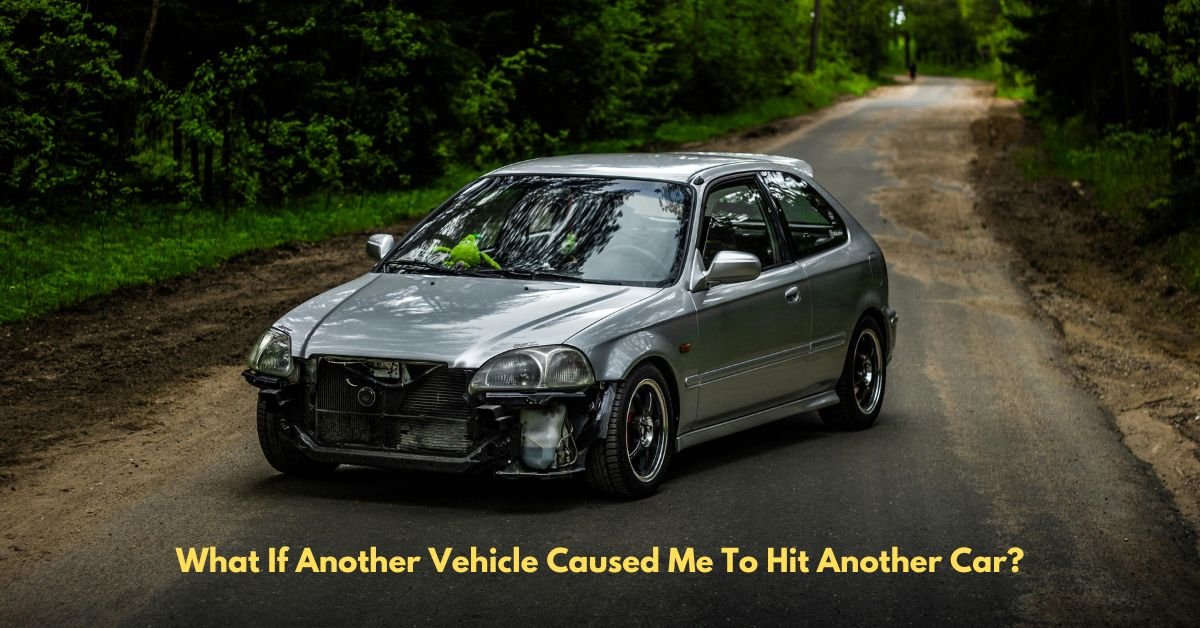Accidents happen on the road every day, and sometimes they’re not entirely your fault. One common situation is when another vehicle causes you to hit another Vehicle, whether due to reckless driving, sudden stops, or other forms of negligence. But what should you do if this happens to you? In this post, we’ll explore the steps you should take, the legal and insurance aspects, and how to handle the aftermath if another driver is at fault in causing a collision between you and another vehicle.
Blog Post: What if Another Vehicle Caused Me to Hit Another Car?
1. Understanding the Situation (100-150 words)
When you’re driving and another vehicle causes you to hit another Vehicle, the situation can be complicated. The cause could be anything from tailgating, abrupt lane changes, or a vehicle cutting you off. The first thing to realize is that, although the other driver’s actions might have directly led to the crash, your responsibility could still be involved in the aftermath. Here are some common causes:
- Sudden Braking: If a vehicle in front of you suddenly slams on their brakes, causing you to rear-end another Vehicle.
- Reckless Lane Changing: A driver swerves into your lane, and you, in an effort to avoid them, hit a car next to you.
- Cutting You Off: A car suddenly pulling in front of you, causing you to hit the vehicle in front of you.
Understanding the specifics of the accident helps with addressing liability and handling the aftermath.
2. What to Do Immediately After the Accident (150-200 words)
If you find yourself in a situation where another vehicle causes you to hit another Vehicle, the steps you take immediately afterward are crucial for your safety and legal protection. Here’s what to do:
- Ensure Safety First: If possible, pull over to a safe location. If the vehicles are still in a dangerous position (like on a highway), keep your hazard lights on and stay inside your vehicle if it’s safe.
- Check for Injuries: Ensure everyone involved in the accident is okay. In the event of any injury, contact emergency services.
- Document the Scene: Take detailed photos of the scene, the damage, and any visible signs of the other vehicle’s involvement. This can include skid marks, positioning of cars, and any traffic signs or signals that could explain the event.
- Exchange Information: Get contact details from the other driver(s) involved in the crash, including their insurance details. You should also write down any witnesses’ information.
- Call the Police: Even if the accident is minor, calling the police to file a report is a good idea, especially if you plan on claiming insurance or pursuing legal action. What transpired can be established with the aid of a police report.
Must Read: What Dia is 6 Gauge Car Battery Cable?

3. Insurance Implications (150-200 words)
After the accident, one of the first questions that arise is about insurance and whether your claim will be affected by the other vehicle’s involvement. Here’s what you should know:
- Determining Fault: In many cases, if the other driver caused you to hit another Vehicle, they may be held liable for the damages. This is where the police report and evidence gathered from the scene will be critical. Your insurance company may work with the other driver’s insurer to determine liability.
- Collision Coverage: If you have collision insurance, your policy may cover the damages to your car even if you were indirectly responsible for the crash. However, if the other driver is found to be at fault, their insurance might cover the costs, and your deductible could be reimbursed later.
- No-Fault States: If you live in a no-fault state, the situation is a bit different. In no-fault states, your own insurance typically covers the costs of medical expenses and vehicle repairs, regardless of who is at fault. However, you can still pursue a claim against the other driver if your damages exceed a certain threshold.
4. Legal Considerations (100-150 words)
Sometimes, accidents involving multiple parties lead to legal disputes, especially if liability isn’t clear or if the damage is substantial. If another driver caused you to hit another vehicle, there may be situations where you want to consult a lawyer. Here are some scenarios:
- Disputing Fault: If the other driver denies responsibility, a lawyer can help you fight the claim using evidence, such as witness statements, video footage, or the police report.
- Injuries: If you or someone else sustained injuries from the accident, you may need legal help to ensure proper compensation. Medical bills and lost wages can quickly add up, and a lawyer can assist in ensuring that your rights are protected.
- Negligence Claims: In cases where reckless driving or other forms of negligence caused the accident, you may be entitled to more than just insurance payouts.
Conclusion (75-100 words)
Accidents where one vehicle causes you to hit another Vehicle can be confusing, stressful, and complicated, but understanding your rights and responsibilities is key. By staying calm, documenting everything, and seeking proper insurance and legal advice, you can navigate the situation more smoothly. Remember, accidents are never predictable, but being prepared can make a big difference in how you handle the aftermath.
